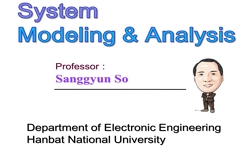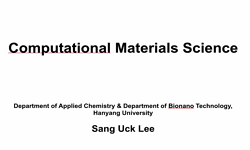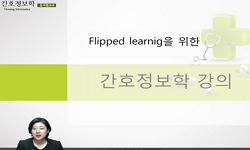The law of large numbers is the main principle that describes the relationship between mathematical and statistical probability. To understand the law of large numbers, it is necessary to grasp pattern and variability at the same time. This study sets...
http://chineseinput.net/에서 pinyin(병음)방식으로 중국어를 변환할 수 있습니다.
변환된 중국어를 복사하여 사용하시면 됩니다.
- 中文 을 입력하시려면 zhongwen을 입력하시고 space를누르시면됩니다.
- 北京 을 입력하시려면 beijing을 입력하시고 space를 누르시면 됩니다.

확률실험 환경에서 초등학교 수학영재 학생과 일반 학생의 확률 탐구 특성 비교 = A Comparative Study on Characteristics of Mathematically Gifted and Non-Gifted Students’ Exploration on Probability Using Probability Experiments
한글로보기https://www.riss.kr/link?id=A106257741
- 저자
- 발행기관
- 학술지명
- 권호사항
-
발행연도
2019
-
작성언어
Korean
- 주제어
-
등재정보
KCI등재
-
자료형태
학술저널
- 발행기관 URL
-
수록면
369-389(21쪽)
-
KCI 피인용횟수
0
- DOI식별코드
- 제공처
-
0
상세조회 -
0
다운로드
부가정보
다국어 초록 (Multilingual Abstract)
The law of large numbers is the main principle that describes the relationship between mathematical and statistical probability. To understand the law of large numbers, it is necessary to grasp pattern and variability at the same time. This study sets the inference of pattern and variability for the two axes of analysis, and analyzes the learning patterns of probability concept of mathematically gifted students and non-gifted students in the physical and computer simulation situations, and compares the characteristics that appear in the two groups. This study found that in both situations, mathematically gifted students showed a higher level of understanding compared to non-gifted students, and in computer simulation situations, a rise in understanding level was observed in both groups. Meanwhile, it was observed that most students, whether or not they were mathematically gifted, failed to recognize chance variability. Based on these results, this study presents a basic perspective to establish learning paths suitable for student's level.
국문 초록 (Abstract)
큰 수의 법칙은 수학적 확률과 통계적 확률 사이의 관계를 설명하는 주요한 원리이다. 큰 수의 법칙을 이해하기 위해서는 시행 횟수를 늘림에 따라 나타나는 분포의 전체적인 경향과 개별 ...
큰 수의 법칙은 수학적 확률과 통계적 확률 사이의 관계를 설명하는 주요한 원리이다. 큰 수의 법칙을 이해하기 위해서는 시행 횟수를 늘림에 따라 나타나는 분포의 전체적인 경향과 개별 시행에서 나타나는 변이성을 동시에 파악해야 할 필요가 있다. 이에 본 연구는 중심에 의한 추론과 변이성에 대한 추론을 분석의 두 축으로 하여, 물리적 상황과 컴퓨터 시뮬레이션 상황에서 나타나는 수학영재 학생과 일반 학생의 확률개념 학습 양상을 분석하고 두 집단에서 나타나는 특징을 비교한다. 연구 결과, 물리적 상황에서 수학영재 학생은 대체적으로 일반 학생에 비해 더 높은 이해수준을 보여주었으며, 일반 학생의 절반 정도가 경향성의 파악에 실패하는 모습을 보였다. 컴퓨터 시뮬레이션 상황에서 두 집단의 이해수준이 모두 상승하였으나, 많은 일반 학생이 관계적 이해수준에는 도달하지 못하는 모습을 확인할 수 있었다. 한편, 변이성에 대한 인식과 관련하여, 대부분의 수학영재 학생과 일반 학생이 우연변이성의 인식에 실패하는 현상이 관찰되었다. 이러한 결과를 바탕으로 본 연구는 각각의 학생의 수준에 적합한 학습경로를 설정하는 데 필요한 기초자료를 제시하였다.
참고문헌 (Reference)
1 김지원, "한 수학영재아의 수학적 사고 특성에 관한 사례연구" 대한수학교육학회 14 (14): 89-110, 2004
2 신보미, "컴퓨터 시뮬레이션을 통한 통계적 확률 지도에 대한 연구" 대한수학교육학회 16 (16): 139-156, 2006
3 송상헌, "초등학교 6학년 수학영재들의 기하 과제 증명 능력에 관한 사례 분석" 대한수학교육학회 16 (16): 327-344, 2006
4 최병훈, "초등학교 5학년 수학영재와 일반아의 확률판단 비교" 대한수학교육학회 17 (17): 179-199, 2007
5 송상헌, "초등수학영재들이 페그퍼즐 과제에서 보여주는 대수적 일반화 과정 분석" 대한수학교육학회 17 (17): 163-177, 2007
6 김민정, "초등 수학영재의 대수적 사고 특성에 관한 분석" 대한수학교육학회 10 (10): 23-42, 2008
7 신보미, "시뮬레이션을 활용한 확률 지식의 교수학적 변환 방식" 한국교원대학교 대학원 2007
8 신보미, "시뮬레이션을 활용한 확률 지식의 교수학적 변환" 대한수학교육학회 18 (18): 25-50, 2008
9 Krutetskii, V. A., "수학적 능력의 심리학" 경문사 2014
10 고은성, "수학영재학급 학생들과 일반학급 학생들의 통계적 변이성 인식 수준 비교 연구" 한국영재학회 23 (23): 387-406, 2013
1 김지원, "한 수학영재아의 수학적 사고 특성에 관한 사례연구" 대한수학교육학회 14 (14): 89-110, 2004
2 신보미, "컴퓨터 시뮬레이션을 통한 통계적 확률 지도에 대한 연구" 대한수학교육학회 16 (16): 139-156, 2006
3 송상헌, "초등학교 6학년 수학영재들의 기하 과제 증명 능력에 관한 사례 분석" 대한수학교육학회 16 (16): 327-344, 2006
4 최병훈, "초등학교 5학년 수학영재와 일반아의 확률판단 비교" 대한수학교육학회 17 (17): 179-199, 2007
5 송상헌, "초등수학영재들이 페그퍼즐 과제에서 보여주는 대수적 일반화 과정 분석" 대한수학교육학회 17 (17): 163-177, 2007
6 김민정, "초등 수학영재의 대수적 사고 특성에 관한 분석" 대한수학교육학회 10 (10): 23-42, 2008
7 신보미, "시뮬레이션을 활용한 확률 지식의 교수학적 변환 방식" 한국교원대학교 대학원 2007
8 신보미, "시뮬레이션을 활용한 확률 지식의 교수학적 변환" 대한수학교육학회 18 (18): 25-50, 2008
9 Krutetskii, V. A., "수학적 능력의 심리학" 경문사 2014
10 고은성, "수학영재학급 학생들과 일반학급 학생들의 통계적 변이성 인식 수준 비교 연구" 한국영재학회 23 (23): 387-406, 2013
11 송상헌, "수학영재들이 NIM 게임 과제에서 만든 문제 만들기 사례 분석" 대한수학교육학회 17 (17): 51-66, 2007
12 고은성, "수학영재 학생들의 정다면체 정의 구성 활동 분석" 한국영재학회 18 (18): 53-77, 2008
13 교육부, "수학과 교육과정. 교육부 고시 제2015-74호 [별책 8]"
14 송상헌, "수학 영재의 추상화 학습에서 기호의 의미 작용 과정 사례 분석" 대한수학교육학회 9 (9): 161-180, 2007
15 나귀수, "수학 영재 학생들의 조건부 확률 문제해결 방법" 대한수학교육학회 9 (9): 397-408, 2007
16 송상헌, "도형의 최대 분할 과제에서 초등학교 수학 영재들이 보여주는 정당화의 유형 분석" 대한수학교육학회 16 (16): 79-94, 2006
17 Konold, C, "TinkerPlots: Dynamic Data Exploration"
18 Rossman, A., "Thinking and reasoning with data and chance:Sixty-eighth yearbook" NCTM 323-333, 2006
19 Hare, C., "The role of statistical thinking in management" 28 (28): 53-60, 1995
20 Porter, T. M., "The rise of statistical thinking 1820-1900" Princeton University Press 1986
21 Hacking, I., "The emergence of probability:A philosophical study of early ideas about probability, induction, and statistical inference" Cambridge University Press 1975
22 Ko, E. S., "The elements of creativity and giftedness in mathematics" Sense Publishers 29-43, 2011
23 Reading, C., "Student perceptions of variation in a sampling situation" Hiroshima University 4 : 89-96, 2000
24 Moore, D. S., "Statistics and mathematics : Tension and cooperation" 107 (107): 615-630, 2000
25 Watson, J. M., "Statistical variation in a chance setting : A two-year study" 57 (57): 121-144, 2004
26 Batanero, C., "Research on teaching and learning probability" Springer International Publishing 2016
27 Konold, C., "Reconnecting data and chance" 2 (2): 2008
28 Biehler, R., "Probabilistic thinking, statistical reasoning, and the search for causes: Do we need a probabilistic revolution after we have taught data analysis?" University of Minnesota 1994
29 Moore, D. S., "On the shoulders of giants" National Academy Press 95-137, 1990
30 Cobb, G. W., "Mathematics, statistics, and teaching" 104 (104): 801-823, 1997
31 Rice, J. A., "Mathematical statistics and data analysis" Brooks/Cole 2007
32 Sriraman, B., "Mathematical giftedness, problem solving, and the ability to formulate generalizations : The problem-solving experiences of four gifted students" 14 : 151-165, 2003
33 Lee, H. S., "Making comparisons between observed data and expected outcomes : Students’ informal hypothesis testing with probability simulation tools" 9 (9): 68-96, 2010
34 Pratt, D., "Local and global thinking in statistical inference" 7 (7): 107-129, 2008
35 Shaughnessy, J. M., "Handbook of research on mathematics teaching and learning" Macmillan 465-494, 1992
36 Schnell, S., "From"everything changes"to"for high numbers, it changes just a bit"-Theoretical notions for a microanalysis of conceptual change processes in stochastic contexts" 44 (44): 825-840, 2012
37 Batanero, C., "Exploring probability in school:Challenges for teaching and learning" Springer 241-266, 2005
38 Batanero, C., "Exploring probability in school: Challenges for teaching and learning" Springer 15-37, 2005
39 Biggs, J. B., "Evaluating the quality of learning: the SOLO taxonomy" Academic Press 1982
40 Torok, R., "Development of the concept of statistical variation : An exploratory study" 12 (12): 147-169, 2000
41 English, L. D., "Development of probabilistic understanding in fourth grade" 47 (47): 28-62, 2016
42 Bakker, A., "Developing Research in Mathematics Education" Routledge 68-81, 2018
43 Kippers, W. B., "Data literacy: What do educators learn and struggle with during a data use intervention?" 56 : 21-31, 2018
44 Konold, C., "Data analysis as the search for signals in noisy processes" 33 (33): 259-289, 2002
45 Prodromou, T., "Connecting experimental probability and theoretical probability" 44 (44): 855-868, 2012
46 Konold, C., "Conceptual challenges in coordinating theoretical and data-centered estimates of probability" 13 (13): 68-86, 2011
47 Borovcnik, M., "Chance encounters:Probability in education" Kluwer Academic Publishers 27-71, 1991
48 Steinbring H., "Chance encounters:Probability in education" Springer Netherlands 135-167, 1991
49 Ireland, S., "Building a connection between experimental and theoretical aspects of probability" 4 (4): 339-370, 2009
50 Dreyfus, T., "Ben’s consolidation of knowledge structures about infinite sets" 23 (23): 271-300, 2004
동일학술지(권/호) 다른 논문
-
- 대한수학교육학회
- 김동중
- 2019
- KCI등재
-
초등학교 수학교과서의 단원을 개발하기 위한 수업 사례 연구: ‘규칙과 대응’ 단원을 중심으로
- 대한수학교육학회
- 방정숙
- 2019
- KCI등재
-
- 대한수학교육학회
- 박주현
- 2019
- KCI등재
-
수학과 교육과정 문서의 내용 체계에 대한 반성적 고찰: ‘핵심 개념’, ‘일반화된 지식’, ‘기능’을 중심으로
- 대한수학교육학회
- 양성현
- 2019
- KCI등재
분석정보
인용정보 인용지수 설명보기
학술지 이력
| 연월일 | 이력구분 | 이력상세 | 등재구분 |
|---|---|---|---|
| 2026 | 평가예정 | 재인증평가 신청대상 (재인증) | |
| 2020-01-01 | 평가 | 등재학술지 유지 (재인증) |  |
| 2017-01-01 | 평가 | 등재학술지 유지 (계속평가) |  |
| 2013-01-01 | 평가 | 등재학술지 유지 (등재유지) |  |
| 2010-01-01 | 평가 | 등재학술지 유지 (등재유지) |  |
| 2008-01-01 | 평가 | 등재학술지 유지 (등재유지) |  |
| 2005-01-01 | 평가 | 등재학술지 선정 (등재후보2차) |  |
| 2004-01-01 | 평가 | 등재후보 1차 PASS (등재후보1차) |  |
| 2002-01-01 | 평가 | 등재후보학술지 선정 (신규평가) |  |
학술지 인용정보
| 기준연도 | WOS-KCI 통합IF(2년) | KCIF(2년) | KCIF(3년) |
|---|---|---|---|
| 2016 | 0.91 | 0.91 | 1.13 |
| KCIF(4년) | KCIF(5년) | 중심성지수(3년) | 즉시성지수 |
| 1.05 | 1.03 | 1.504 | 0.27 |




 스콜라
스콜라




